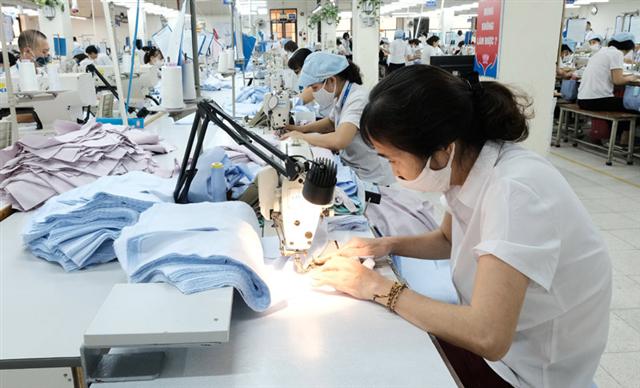Preferential incentives not the only lure for foreign investors in IZs
Preferential incentives not the only lure for foreign investors in IZs
Many industrial zones (IZs) are finding it difficult to attract foreign investors despite significant investment incentives.
An investment broker who brought many Asian investors to Vietnam, for example, has complained that he missed a big deal.
“An Asian investor changed his mind at the last minute,” he said. “Instead of setting up a factory in Binh Thuan province, he decided to go to an IZ in Binh Phuoc province which gave very competitive offers.”
Some IZs in HCM City located far from arterial traffic routes also find it hard to call for investments.
The latest report by Cushman & Wakefield, a real estate service provider, showed that there are 18 operational IZs in HCM City, covering a total area of 3,625 hectares, 62 percent of which, or 2,260 hectares, is leasable. On average, the IZs have 36 more years of using the land.
Most of the IZs in HCM City have had high occupancy rates of over 90 percent after many years of operation. However, in some IZs in the districts of Nha Be, Cu Chi and Binh Chanh, the occupancy rate is below 50 percent.
The average offered rent in the last quarter of 2014 was the same with the previous quarters, at VND2.598 million per square meter, not including VAT.
The rent is believed to be twice as much as the rents in the provinces of Long An, Binh Duong and Dong Nai.
In an effort to raise the IZs’ competitiveness and bring diversified choices to investors, the management boards of some IZs have shifted from leasing industrial land for long term lease to leasing ready-made workshops.
A ready-made workshop with an area of 2,000-3,000 square meters is leased at VND53,200-74,500 per square meter, or $2.5-3.5 per square meter per month.
The Long Hau IZ in Long An province is considered a “pioneer” in the movement, which has been followed by many other IZs in Dong Nai province, which target small and medium enterprises as tenants.
The director of a fashion company which has a factory in Dong Nai province, noted that
local authorities had tried to establish IZs in remote areas, believing that IZs would help develop local economies. However, that has not happened.
“In theory, textile and garment factories could be situated in IZs far from HCM City,” he said. “However, the IZs remain unattractive to investors despite big investment incentives.”
The director said he had been invited to set up a garment factory in an IZ in Ba Ria – Vung Tau province. However, after considering profits from investment incentives and losses due to unfavorable traffic conditions, he realized that production costs would double if he operates a factory in the province.






















